Is Online Casino Blackjack Rigged? Unraveling the Truth
In the vast world of online gambling, blackjack remains a favorite among players for its strategic depth and simple rules. But amidst the allure of virtual cards and digital tables, questions of fairness and integrity can arise. One of the most common concerns is whether online casino blackjack is rigged. This article delves into the workings of online blackjack, the security measures in place, and the role of software in ensuring fair play, as well as the importance of player reviews and testimonials. We’ll also examine the regulatory oversight that governs the industry and debunk some of the most prevalent myths surrounding online blackjack. For players looking to enjoy the game safely and responsibly, we offer some valuable tips to navigate the online blackjack landscape.
Understanding Online Casino Blackjack
Online Casino Blackjack is a digital adaptation of the classic card game that has captivated players for centuries. It brings the thrill of the casino directly to your computer or mobile device, allowing you to play anytime, anywhere. To fully appreciate the online experience, it’s important to understand the basics of the game and how it differs from its land-based counterpart.
The core of online blackjack is the same as the traditional game: players aim to get as close to 21 as possible without going over. The dealer is the one who deals the cards and enforces the rules, much like in a bricks-and-mortar casino. However, there are a few nuances that come with playing online.
Firstly, the interface is designed for convenience. You can easily navigate through different tables, adjust the stakes, and see the odds without leaving your seat. This digital platform also offers a variety of betting options, from low-stakes tables for beginners to high-stakes tables for seasoned gamblers.
One significant difference is the lack of a physical dealer. In online blackjack, the dealer’s actions are automated by the casino’s software. This means there’s no room for human error or favoritism, which can sometimes occur in live dealer games. The software ensures that every hand is dealt fairly and consistently, providing a level playing field for all players.
The online version also allows for a broader range of blackjack variations. While traditional casinos might only offer a few variations, online platforms can feature a vast array of games, including European, Atlantic City, and Vegas Strip blackjack. Each variation has its own set of rules and odds, giving players a chance to explore different strategies and find their preferred style of play.
Graphics and sound are another aspect where online blackjack shines. High-definition visuals and realistic sound effects create an immersive experience that can rival the atmosphere of a land-based casino. The ability to play with multiple decks of cards is also a common feature, which adds to the suspense and excitement of the game.
For those who are new to the game, online blackjack often comes with a wealth of educational resources. Tutorials and guides are readily available to help players learn the rules and strategies. Some online casinos even offer a practice mode where you can play for free, giving you the chance to get a feel for the game without the risk of losing money.
One of the most appealing aspects of online blackjack is the accessibility. You can play from the comfort of your home, at work during a break, or even on the go. Many online casinos offer mobile apps or responsive websites that allow you to play on your smartphone or tablet, ensuring that the game is always within reach.
However, it’s crucial to note that the convenience of online blackjack also comes with its own set of challenges. For instance, the absence of a live dealer means you won’t be able to observe their body language or facial expressions, which can be an advantage in traditional games. Additionally, the speed of the game can vary, with some players preferring the slower pace of live dealer games to savor each moment.
Online casinos also need to be mindful of security and privacy. With sensitive personal and financial information being shared, it’s essential that these platforms employ robust security measures to protect players. Encryption technology is commonly used to secure transactions and ensure that your data is not accessible to unauthorized parties.
In conclusion, online casino blackjack is a game that has been meticulously designed to provide a fair and enjoyable experience for players of all skill levels. Whether you’re a seasoned blackjack aficionado or a beginner looking to learn the ropes, the online format offers a wide array of options to suit your preferences. From the convenience of playing anytime and anywhere to the array of game variations and educational resources, online blackjack is a versatile and engaging form of entertainment.

The Rigging Debate: Fact or Fiction?
In the world of online gambling, one of the most common concerns among players is the integrity of the games, particularly when it comes to online casino blackjack. The question of whether the game is rigged or not has sparked a lively debate among enthusiasts and skeptics alike. Let’s delve into some of the key points that fuel this discussion.
The debate often centers on the fairness of the outcome. Many players wonder if the cards are shuffled in a way that favors the house, or if there’s a hidden algorithm that can predict the results. It’s a valid concern, given that online games rely on technology, and technology can sometimes be perceived as less trustworthy than a human dealer.
Critics argue that the randomness of online blackjack is compromised by the fact that it’s based on software. They point out that while random number generators (RNGs) are designed to ensure fairness, there’s always a remote possibility of a glitch or manipulation. This skepticism is understandable, considering the number of high-profile cases where software has been found to be biased or vulnerable to hacking.
However, proponents of online blackjack argue that the very nature of RNGs is what makes the game fair. These algorithms are tested and certified by independent bodies to ensure they produce outcomes that are as random as possible. The randomness is not just a concept; it’s a mathematical principle that underpins the entire gaming experience.
Another point of contention is the lack of transparency. Online casinos are often criticized for not being as open about their gaming systems as brick-and-mortar establishments. This lack of visibility can lead to mistrust, as players feel they have no way of verifying the fairness of the game.
Despite these concerns, many reputable online casinos go to great lengths to assure players of their integrity. They obtain licenses from regulatory bodies, which require them to adhere to strict standards of fairness and security. These licenses are a testament to the fact that the games are not only monitored but also regularly audited for compliance.
One of the most compelling arguments against rigging in online blackjack is the sheer volume of players. If a casino were to rig the game, the likelihood of getting caught would be incredibly high, especially given the advanced security measures in place today. The sheer number of players logging on to play at any given time means that any attempt at rigging would have to be incredibly sophisticated and would likely be detected quickly.
Additionally, the fact that online blackjack is available to players worldwide means that any rigging would have to be global in scope. This is a tall order for any individual or group to undertake, and the potential for exposure is immense. The idea of a centralized rigging scheme is not only technologically challenging but also legally risky.
The psychological aspect of rigging is also worth considering. Online casinos rely on repeat business and a good reputation to attract and retain players. Rigging a game would not only be unethical but would also be detrimental to the casino’s bottom line. It’s in the casinos’ best interest to maintain a level playing field, as it encourages players to come back for more.
Moreover, the availability of player reviews and testimonials serves as a form of self-regulation. If players believe a game is rigged, they will not only stop playing but also share their experiences online. The online community has a knack for sniffing out potential fraud, and casinos that are found to be rigging often face severe backlash and loss of business.
In conclusion, while the debate over whether online casino blackjack is rigged is unlikely to be resolved to everyone’s satisfaction, the evidence suggests that the game is, in fact, fair. The combination of rigorous testing, independent audits, the global nature of online gambling, and the casinos’ own vested interests all point to a system designed to provide a fair and enjoyable experience for players. As long as players remain vigilant and choose reputable casinos, the likelihood of encountering a rigged game is slim.

How Online Blackjack Works
Online blackjack, much like its land-based counterpart, is a game of skill and chance that has been adapted for the digital realm. The core principles remain the same, but the way it’s played and experienced has evolved significantly. Here’s a closer look at how online blackjack operates:
The Basics of Online BlackjackPlayers are dealt two cards, and the goal is to have a hand value as close to 21 as possible without exceeding it. In online versions, this is achieved through a user-friendly interface that allows players to interact with the game by clicking on their cards or making decisions with the help of an auto-dealer.
The Dealer’s RoleIn online blackjack, the dealer is often a computer program that follows predefined rules to shuffle the deck, deal cards, and determine the outcome of each hand. This automated process ensures that the game is fair and unbiased, as the dealer is not influenced by human error or bias.
The Deck and ShuffleOnline blackjack typically uses a standard deck of 52 cards, just like traditional blackjack. However, some versions may include multiple decks to enhance the randomness of the game. The deck is shuffled before each hand to ensure that the outcome is not predictable, which is a crucial aspect of the game’s integrity.
Placing BetsBefore the cards are dealt, players must place their bets. Online casinos offer various betting options, from small stakes for beginners to high stakes for seasoned players. The betting limits are set by the casino and can vary widely, catering to different budgets and preferences.
The Play of the HandOnce players have placed their bets, the dealer deals two cards to each player, including themselves. The dealer’s first card is usually dealt face up, and the second card is dealt face down, known as the hole card. Players can then choose to hit (receive another card), stand (end their turn), double down (double their bet and receive one more card), split (create two separate hands from a pair), or surrender () their hand.
The Dealer’s TurnAfter all players have made their decisions, the dealer plays their hand according to the rules of blackjack. The dealer must hit until their hand reaches 17 or higher, at which point they must stand. If the dealer’s hand exceeds 21, it’s considered a bust, and all players who haven’t busted win.
The OutcomeThe outcome of each hand is determined by comparing the values of the players’ hands to the dealer’s. If a player’s hand is closer to 21 than the dealer’s without busting, the player wins. If the dealer’s hand is closer, the player loses. If both the player and the dealer bust, the player loses their bet. In the event of a tie (also known as a push), the player’s bet is typically returned.
Additional Rules and FeaturesOnline blackjack often includes additional rules and features to enhance the gameplay. These can range from side bets to insurance options. Side bets can offer players the chance to win additional money on specific card combinations, while insurance is a bet that players can make when the dealer’s upcard is an ace, offering protection against the dealer having a natural blackjack.
The Interface and ExperienceThe online blackjack experience is largely dictated by the interface of the software. Modern online casinos use sophisticated graphics and animations to create a realistic and engaging atmosphere. Players can view their hands and the dealer’s hand on a virtual table, and the game’s progress is displayed in real-time.
Live Dealer BlackjackIn addition to standard online blackjack, many casinos offer live dealer versions of the game. This allows players to interact with a real dealer through a live video stream. The dealer is in a studio or casino, and players can place bets, make decisions, and enjoy the social aspect of the game from the comfort of their own homes.
Mobile and Tablet PlayOnline blackjack has become increasingly accessible through mobile devices. Players can download casino apps or access mobile-optimized websites to play blackjack on the go. This convenience has made the game even more popular, as players can enjoy their favorite card game anytime, anywhere.
In conclusion, online blackjack is a game that has been seamlessly adapted to the digital age. It retains the same thrilling gameplay and strategic elements as traditional blackjack, but with the added benefits of convenience, variety, and a level of accessibility that traditional casinos simply can’t match.
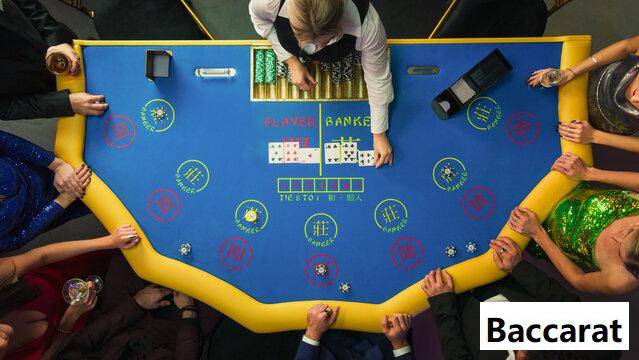
Security Measures in Online Casinos
In the digital age, the security of online transactions is paramount, and this extends to online casinos where players entrust their personal and financial information. Here’s a closer look at the various security measures that online casinos employ to ensure a safe and trustworthy gaming environment.
Online casinos use encryption technology to protect player data. This involves the use of Secure Socket Layer (SSL) encryption, which creates a secure, encrypted connection between a player’s device and the casino’s servers. This means that any information transmitted, such as credit card details or personal information, is rendered unreadable to anyone who might attempt to intercept it.
Two-factor authentication (2FA) is another layer of security that many online casinos implement. This requires players to provide two different types of verification when logging into their accounts. Typically, this includes something the player knows (like a password) and something the player has (like a unique code sent to their mobile device). This method significantly reduces the risk of unauthorized access.
To prevent fraudulent activities, online casinos employ sophisticated fraud detection systems. These systems analyze patterns of play, transaction history, and other data points to identify and flag suspicious behavior. If an unusual pattern is detected, the casino can take immediate action, such as blocking the account or contacting the player for clarification.
Reputable online casinos are licensed and regulated by gaming authorities. These regulatory bodies set strict standards for security and fair play, and they regularly audit the casinos to ensure compliance. Players can often verify the casino’s license by looking for the regulatory body’s logo on the website and checking the details on the casino’s “About Us” or “Legal” page.
The use of digital wallets and e-wallets has become increasingly popular for online gambling. These services act as intermediaries between the player’s bank account and the casino, providing an additional layer of security. Transactions are processed through secure servers, and players don’t need to share their sensitive financial information directly with the casino.
To protect against DDoS (Distributed Denial of Service) attacks, which can overwhelm a website with traffic and render it unusable, online casinos invest in robust cybersecurity measures. This includes the use of firewalls, intrusion detection systems, and load balancers to distribute traffic evenly and protect against potential attacks.
In addition to technical security measures, online casinos also focus on player education. They provide resources and guidelines on how to play safely, recognize the signs of gambling addiction, and how to use responsible gaming tools. Many casinos also offer self-exclusion programs, allowing players to temporarily or permanently ban themselves from the site.
Regular security audits are a standard practice for online casinos. These audits are conducted by independent third-party organizations to assess the casino’s security protocols, software, and overall cybersecurity posture. The results of these audits are often made public, providing players with confidence in the casino’s commitment to security.
Lastly, online casinos prioritize the confidentiality of player data. They adhere to strict data protection laws, such as the General Data Protection Regulation (GDPR) in Europe, which requires that personal data be processed lawfully, transparently, and securely.
In summary, online casinos employ a wide array of security measures to protect player information and ensure a safe gaming environment. From encryption and two-factor authentication to regulatory oversight and player education, these measures collectively create a fortress of security that players can rely on when enjoying their favorite casino games online.
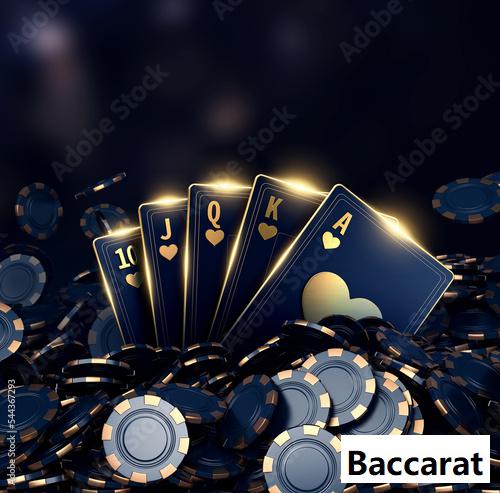
Random Number Generators (RNGs) Explained
In the world of online casinos, the heart of fairness and randomness lies within a crucial technology known as the Random Number Generator (RNG). This sophisticated piece of software is the backbone of online blackjack and countless other casino games. Let’s delve into how RNGs work and why they are essential for a fair gaming experience.
The concept of a RNG is simple yet complex. It’s a mathematical algorithm designed to produce a sequence of numbers that have no predictable pattern. This sequence is supposed to mimic the randomness of physical events, like flipping a coin or drawing cards from a shuffled deck. In the context of online blackjack, the RNG ensures that each hand dealt is as random as if a real dealer were shuffling and dealing cards.
One might wonder how a machine can be truly random. The key lies in the RNG’s ability to process an enormous amount of data in a short period. It does this by using a mathematical formula that takes a starting value, known as the “seed,” and generates a sequence of numbers. The randomness of the sequence depends on how complex and unpredictable the algorithm is. The more complex the algorithm, the harder it is to predict the outcome of the next number in the sequence.
Online casinos employ RNGs that have been tested and certified by independent third-party organizations. These organizations ensure that the RNGs used in online games are fair and that the casino is not manipulating the outcomes. One of the most renowned testing agencies is eCOGRA, which conducts rigorous audits to verify the integrity of online gambling sites.
The RNG’s randomness is also a testament to its adaptability. It can generate a new sequence for every hand dealt, ensuring that no two hands are the same. This is particularly important in games like blackjack, where the outcome of each hand can significantly impact the game’s progression.
Another aspect of RNGs that is crucial to online blackjack is its ability to maintain a level playing field for all players. Since the outcome of each hand is determined by the RNG and not by any external factor, players are free to strategize and make decisions based on the cards they are dealt, rather than worrying about whether the game is being rigged.
It’s important to note that while RNGs ensure the fairness of online blackjack, they don’t guarantee that players will win. The game still relies on the laws of probability, and the house always has an edge. However, the presence of RNGs ensures that this edge is not the result of manipulation but rather the natural outcome of the game’s mechanics.
Despite the sophistication of RNGs, some players remain skeptical. They argue that machines can be tampered with or that the software might have hidden biases. To address these concerns, online casinos use multiple layers of security. They employ SSL encryption to protect player data, secure their websites with firewalls, and regularly update their software to patch any potential vulnerabilities.
In addition to these measures, many online casinos are transparent about their use of RNGs. They publish reports from independent auditors and provide detailed information about their RNG algorithms. This transparency allows players to feel confident that the games they are playing are fair and that the casino is not trying to rig the outcome.
Furthermore, RNGs are not just used in online blackjack but across all online casino games. From slots to poker, RNGs ensure that the outcome of each game is random and fair. This has been a significant factor in the growth of online gambling, as players can trust that the games they are playing are not being manipulated.
In conclusion, RNGs are the unsung heroes of online blackjack and other casino games. They provide a level of randomness and fairness that is essential for a trustworthy gaming experience. The use of RNGs, along with the security measures implemented by online casinos, ensures that players can enjoy their favorite games with the peace of mind that the outcomes are as random and fair as possible.
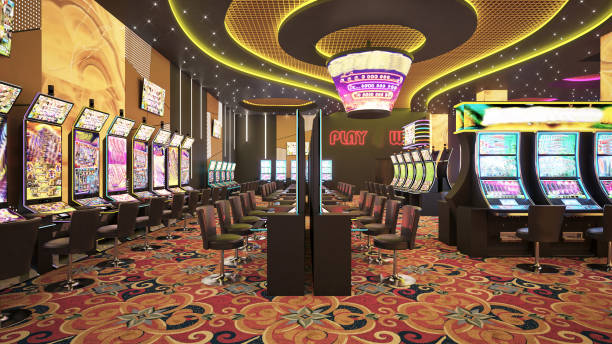
The Role of Software in Fair Play
In the world of online gambling, the software that powers games is the backbone of fair play and security. Here’s a closer look at the role of software in ensuring that online blackjack and other casino games are not only entertaining but also fair.
Software is the unsung hero of online casinos. It’s the driving force behind the seamless experience players enjoy. This software is responsible for everything from game rules to the way cards are shuffled and dealt. It’s crucial to understand that the software used in online blackjack is designed to be as transparent and reliable as possible.
One of the key aspects of software in online blackjack is the random number generator (RNG). This technology ensures that every outcome of the game is completely random and cannot be predicted or manipulated by either the player or the casino. The RNG is the cornerstone of fair play, as it guarantees that every hand dealt is an independent event, free from any bias or pattern.
Online casinos use advanced RNGs that have been rigorously tested and certified by independent third-party organizations. These organizations, such as eCOGRA and iTech Labs, audit the software to ensure it meets strict standards for randomness and fairness. The certification process involves extensive testing to verify that the RNG generates numbers that are truly random and unpredictable.
The software also includes a feature known as a “shuffled deck” or “shuffling algorithm.” This ensures that the sequence of cards is constantly changing, making it impossible for players to gain an advantage by predicting the next card to be dealt. The algorithm mimics the physical process of shuffling a deck of cards, providing an authentic and fair experience.
Beyond the RNG and shuffling algorithms, the software in online blackjack also incorporates various security measures to protect players’ personal and financial information. Encryption technology, such as SSL (Secure Sockets Layer), is used to secure all data transmitted between the player’s device and the casino’s servers. This means that sensitive information like credit card details and login credentials are encrypted and cannot be intercepted by hackers.
Additionally, the software often includes a “fair play” system that monitors gameplay for any suspicious activity. This system can detect patterns that may indicate cheating or other forms of unfair play. If any irregularities are detected, the software can automatically suspend the account or investigate the incident further.
The software also plays a role in the user interface and experience. Online casinos invest in high-quality software that offers a responsive and intuitive interface. This makes it easier for players to navigate the site, place bets, and enjoy the game. The graphics, animations, and sound effects are designed to enhance the entertainment value and keep players engaged.
One important aspect of software in online blackjack is the availability of different game variants. Players can choose from classic blackjack, multi-hand blackjack, and other variations with unique rules and side bets. The software supports these different versions, allowing players to find the one that best suits their preferences and playing style.
Moreover, the software enables online casinos to offer live dealer blackjack. This feature uses high-definition streaming to connect players with real-life dealers in a live casino environment. The software ensures that the live feed is smooth and that players can interact with the dealer and other players in real-time.
In terms of player protection, the software also includes features like deposit limits and self-exclusion options. These tools help players manage their gambling behavior and prevent problem gambling. The software can set limits on how much a player can deposit, withdraw, or lose in a given period, and it can also allow players to self-exclude themselves from the casino if they feel they need a break from gambling.
Lastly, the software in online blackjack is regularly updated to fix bugs, improve performance, and enhance security. Online casinos work closely with software developers to ensure that their games are always up-to-date with the latest technological advancements. This ongoing development process is crucial for maintaining a fair and enjoyable gaming experience.
In conclusion, the software in online blackjack is not just a tool for entertainment; it’s the foundation of a fair and secure gaming environment. From the random number generators that ensure each hand is a fair draw to the advanced security measures that protect players’ information, the software plays a vital role in upholding the integrity of online gambling. Players can rest assured that the software they use is designed to provide a level playing field and a fun, safe gaming experience.

Player Reviews and Testimonials
In the world of online casinos, player reviews and testimonials can be as varied as the games themselves. They serve as a window into the experiences of others who have ventured into the virtual gaming realm. Here’s a glimpse into what these reviews and testimonials can reveal:
Players often share their first-hand experiences, detailing the ease of signing up and the overall user interface. Some mention how straightforward the process was, while others might express frustration with complicated sign-up procedures or confusing layouts.
Testimonials frequently touch on the variety of games available. Players praise casinos that offer a wide selection, including different versions of blackjack, poker, slots, and more. They might highlight specific games that stood out to them, such as a unique slot machine with a captivating theme or a blackjack variant with innovative rules.
The quality of customer service is a common topic in player reviews. Testimonials often speak to the responsiveness and helpfulness of the support team. A positive mention might include a quick resolution to a technical issue or a friendly chat with a support representative who went above and beyond to assist.
Security and fairness are critical concerns for online gamblers. Reviews that tout a casino’s use of SSL encryption and other security measures can reassure potential players. Testimonials might also discuss how the casino is licensed and regulated, which can be a significant factor in a player’s decision to trust a site.
The banking options available can greatly influence a player’s experience. Reviews often note the variety of deposit and withdrawal methods offered, as well as the speed and ease of transactions. Testimonials might highlight a smooth withdrawal process or a lack of hidden fees.
The atmosphere of the online casino is another area that players discuss. Some testimonials might describe a vibrant and engaging platform with a social aspect, such as live dealer games or chat features that allow players to interact with each other. Others might comment on the immersive experience of playing slots with a high-quality graphics and sound design.
Personal anecdotes are a rich source of information in player reviews. Testimonials might include a story of a big win or a particularly memorable game. These stories can be both inspiring and cautionary, as they might reveal the potential for both joy and financial loss.
The loyalty programs and bonuses are also frequently mentioned. Testimonials often speak to the value of these rewards, such as free spins, cashback offers, or exclusive tournaments. Players might express satisfaction with the way these incentives encourage continued play and reward loyalty.
The community aspect of online casinos is highlighted in many reviews. Testimonials might describe a sense of camaraderie among players, with shared experiences and friendly competition. Some players might even mention forming friendships or a sense of belonging to a community.
Players also discuss the mobile experience, noting how well the casino’s website or app performs on their devices. Testimonials might praise the seamless transition from desktop to mobile, the availability of the full range of games on mobile, and the ease of accessing their accounts on the go.
Lastly, reviews often reflect on the overall enjoyment of the gaming experience. Testimonials might summarize the player’s satisfaction with the casino, highlighting what made it stand out from the competition. They might also mention any areas for improvement, such as the need for more customer support during peak hours or the inclusion of new game features.
In summary, player reviews and testimonials offer a diverse range of perspectives on online casinos. They provide insights into the user experience, from the technical aspects to the social interactions, and help potential players make informed decisions about where to play.

Regulatory Oversight: A Closer Look
In the world of online casinos, regulatory oversight is a cornerstone of trust and safety. It’s the invisible force that ensures the games are fair, the operators are legitimate, and players are protected. Let’s delve into the various aspects of this crucial system.
The establishment of licensing bodies is a vital component of regulatory oversight. These organizations are responsible for granting licenses to online casinos, which they do only after a thorough examination of the operator’s business practices, financial stability, and compliance with laws and regulations. This process often includes background checks on the owners and employees of the casino, ensuring they have no history of criminal activity or unethical behavior.
One key aspect of regulatory oversight is the enforcement of strict data protection laws. Online casinos are required to safeguard player information, including personal and financial details. This means implementing robust security measures such as encryption, secure servers, and secure payment gateways. Regulatory bodies regularly audit these systems to ensure they meet the highest standards of data protection.
The fairness of the games is another area where regulatory oversight plays a critical role. Online casinos must use Random Number Generators (RNGs) to ensure that the outcome of each game is completely random and not influenced by any external factors. Regulatory bodies test these RNGs to verify their randomness and fairness. They also examine the games for any signs of bias or manipulation.
In addition to testing the games, regulators scrutinize the odds and payout percentages of online casinos. They ensure that these figures are accurately displayed and that players are not misled. This transparency is crucial for building trust and maintaining the integrity of the online gambling industry.
One might wonder how regulators stay up-to-date with the rapidly evolving online casino landscape. Continuous monitoring and regular site visits are part of the answer. Regulators use sophisticated tools to track the activities of online casinos, looking for any irregularities or violations of the rules. They also rely on reports from players and industry insiders to stay informed about potential issues.
The repercussions for casinos that fail to comply with regulatory oversight are severe. Penalties can range from fines to the suspension or revocation of a license. In extreme cases, operators may face criminal charges, particularly if they are found to have engaged in fraudulent activities or have violated anti-money laundering laws.
Player protection is a cornerstone of regulatory oversight. Regulations often require casinos to offer self-exclusion programs, allowing players to restrict their access to gambling sites. This is particularly important for individuals who may be prone to developing gambling addictions. Regulatory bodies also enforce responsible gambling policies, ensuring that casinos provide resources and support to help players manage their gambling habits.
Another aspect of regulatory oversight is the requirement for casinos to provide clear and accessible terms and conditions. This includes deposit and withdrawal policies, bonus terms, and customer support information. Regulators ensure that these terms are fair and not misleading, giving players a clear understanding of their rights and responsibilities.
Transparency is also a key element of regulatory oversight. Casinos must provide detailed financial statements and undergo regular audits, both internal and external, to ensure financial transparency. This not only protects players but also maintains the credibility of the online gambling industry as a whole.
In conclusion, regulatory oversight is a complex and multifaceted system designed to protect players and maintain the integrity of the online casino industry. From licensing and data protection to game fairness and player safety, these bodies work tirelessly to ensure that players can enjoy a safe and fair gaming experience. The existence of these oversight mechanisms is a testament to the industry’s commitment to responsible and ethical practices.
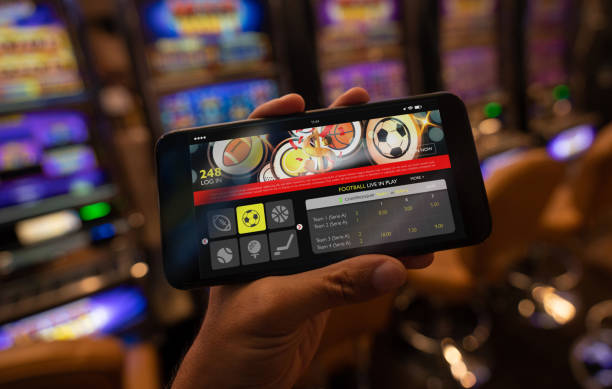
Common Myths Debunked
-
Many players wonder if online casinos are rigged, but the truth is that there are several layers of security and oversight designed to ensure fairness. One of the most crucial elements is the use of Random Number Generators (RNGs).
-
RNGs are algorithms that are used to produce random numbers, which are then used to determine the outcome of games. These systems are meticulously tested and certified by independent third-party auditors to guarantee their randomness and fairness.
-
The RNGs in online blackjack, for instance, are designed to simulate the unpredictable nature of a real deck of cards. Every hand is dealt at random, and the sequence of cards is as unpredictable as if a human dealer were shuffling and dealing them live.
-
One common myth is that online casinos can predict the outcome of hands. However, the RNGs are programmed to produce results that are completely independent of any previous outcomes. This means that even if a player notices a pattern, it is purely coincidental and does not affect the future results.
-
Another myth is that casinos can rig the odds by manipulating the RNGs. This is nearly impossible due to the complex encryption and security measures in place. If an RNG were tampered with, it would be detected almost immediately by the casino’s security team and the auditors.
-
Some players also believe that certain times of the day or night might favor the house. The truth is that RNGs are always running, and the random numbers they generate are not influenced by the time of day, the number of players online, or any other external factors.
-
There’s a misconception that online casinos use less skilled dealers. In reality, online blackjack games use software to simulate the dealing process, which means the game is based on a random algorithm rather than the skill of a dealer.
-
Despite these myths, many players still prefer the human element of live dealer games. However, it’s important to note that the randomness of the outcome is just as secure in live dealer games, as they too rely on RNGs for the shuffle and deal functions.
-
Some players argue that the RNGs are not truly random and can be exploited. This is a myth that stems from a misunderstanding of how these systems work. RNGs are tested to have a random distribution that is indistinguishable from true randomness, which is impossible to predict or manipulate.
-
There’s a belief that online casinos rig the odds in favor of high-stakes players. While it’s true that high rollers can be a significant source of revenue, the odds of the game are not altered to accommodate them. The RNGs remain consistent, regardless of the size of the bets placed.
-
Some players suspect that casinos rig the software to prevent them from winning large sums. However, this is a myth that fails to recognize that online casinos are in business to make money, but not at the expense of their reputation. They rely on repeat customers who enjoy the games, and rigging would erode that trust.
-
One myth that’s been perpetuated is the idea that casinos keep track of player habits and use this information to their advantage. While it’s true that casinos collect data on players for marketing and analysis purposes, they do not use this data to manipulate game outcomes.
-
Lastly, there’s the notion that online casinos are more prone to rigging than land-based casinos. This is a myth that fails to consider the extensive regulations and scrutiny that online operators must undergo. In many cases, online casinos are subject to more rigorous oversight than their land-based counterparts.
-
In conclusion, while myths about online casino rigging persist, the evidence suggests that the use of RNGs and the oversight they receive make rigging highly unlikely. Players can rest assured that the games they play online are designed to be fair and enjoyable.
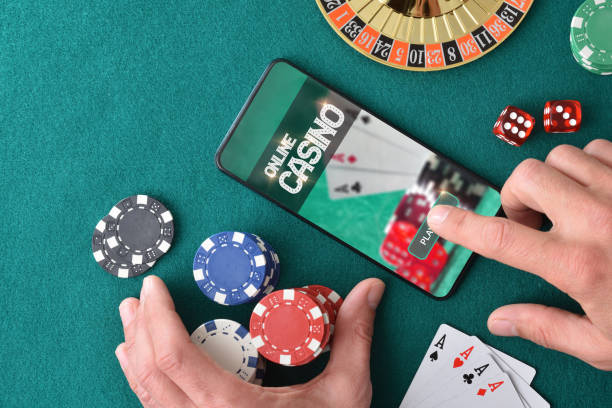
Playing Safe: Tips for Online Blackjack Players
In the world of online blackjack, safety and security are paramount for players. Here are some essential tips to ensure a safe and enjoyable gaming experience:
-
Choose Reputable Casinos: Always select online casinos with a solid reputation. Look for those licensed and regulated by recognized authorities like the UK Gambling Commission, Malta Gaming Authority, or Kahnawake Gaming Commission. These licenses indicate that the casino adheres to strict regulations and standards.
-
Secure Payment Methods: When depositing or withdrawing funds, use secure payment methods like credit/debit cards, e-wallets, or cryptocurrencies. These methods offer additional layers of security, including encryption and fraud protection.
-
Keep Personal Information Private: Never share your personal or financial information with anyone, including the casino’s customer support. The casino should already have all the necessary details to process your transactions.
-
Look for SSL Encryption: A secure socket layer (SSL) encryption is a must for any reputable online casino. It ensures that all data transmitted between your device and the casino’s servers is encrypted, making it nearly impossible for hackers to intercept.
-
Stay Informed About Casino Policies: Familiarize yourself with the casino’s terms and conditions, bonus policies, and withdrawal requirements. This knowledge can help you avoid unexpected issues and make informed decisions.
-
Use Strong, Unique Passwords: Create strong passwords for your online casino accounts and change them regularly. Avoid using easily guessable information like birthdays or common words. A mix of letters, numbers, and symbols is ideal.
-
Be Wary of Phishing Attempts: Be cautious of emails or messages that ask for your login credentials or personal information. These could be phishing attempts designed to steal your data. Always verify the sender’s identity before responding.
-
Play Responsibly: Set a budget for your gaming activities and stick to it. It’s easy to get caught up in the excitement, so set limits on how much time and money you’re willing to spend.
-
Utilize Responsible Gaming Tools: Many online casinos offer tools to help players manage their gaming behavior, such as deposit limits, session limits, and self-exclusion options. Take advantage of these tools if you feel you might be developing a problem.
-
Check for Fair Game Practices: Before signing up, look for information on the casino’s use of random number generators (RNGs) and fair play policies. Reputable casinos use RNGs to ensure that the games are not fixed and that outcomes are random.
-
Read Player Reviews: Before joining a new casino, read reviews from other players. Look for common themes and experiences that can give you insights into the casino’s reliability and customer service.
-
Stay Updated on New Games: Online casinos are always introducing new games and features. Keeping an eye on these updates can lead to discovering new and exciting blackjack variations to play.
-
Protect Your Device: Ensure that your computer or mobile device is protected with up-to-date antivirus software. This will help prevent malware that could compromise your gaming experience and personal information.
-
Play on a Secure Network: Avoid playing online blackjack on public Wi-Fi networks, as they are often unsecured and can be easily intercepted by hackers. Use a secure, password-protected home network instead.
-
Know Your Rights: Familiarize yourself with your rights as a player. If you encounter any issues, know how to report them to the appropriate authorities or customer support teams.
By following these tips, online blackjack players can enjoy their favorite game with peace of mind, knowing that they are taking steps to protect themselves and their funds. Remember, responsible gaming is key to a positive and enjoyable online casino experience.